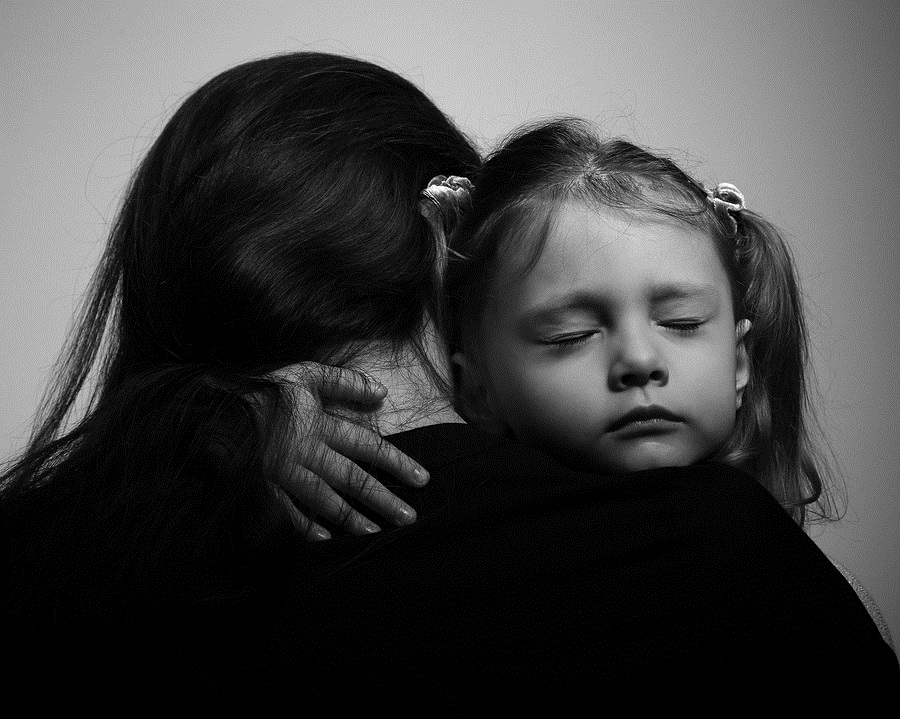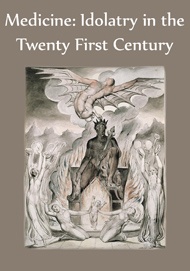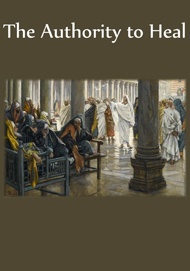
I have told you this so that my joy may be in you and that your joy may be complete. (John 15:11)
The time of Jesus’ earthly ministry was drawing to a close. Soon he would have to walk that lonely road to the cross where he would be crucified, and separated from his family and friends. He knew that his family and friends would initially experience great sorrow over his execution and death, but he also knew what wonderful things were going to happen in the future on the other side of the cross, when he came out of the grave and rose again from the dead. So he takes some time with his closest disciples to try and prepare them for what is about to happen.
At the beginning of the fourteenth chapter of the gospel of John, we have the words of Jesus recorded that he spoke to his closest friends just before he was betrayed and handed over to the Jewish authorities to be arrested and executed:
Do not let your hearts be troubled. Trust in God; trust also in me. In my Father’s house are many rooms; if it were not so, I would have told you. I am going there to prepare a place for you. And if I go and prepare a place for you, I will come back and take you to be with me that you also may be where I am. (John 14:1-3)
Jesus’ words here contain an exhortation, and some promises. The promises are:
1. My father has a “house” with many rooms. This place is not in the current physical world, but in heaven.
2. Jesus was going to this place in heaven, and preparing a place for his friends.
3. Jesus is coming back to take his friends with him to this place in heaven.
These promises then formed the basis for his exhortation: “Do not let your hearts be troubled. Trust in God; trust also in me.” Things were going to get ugly very quickly. A group of soldiers were on the way to arrest Jesus, and he was about to be tried and convicted, and then sentenced to execution. Things would appear to be hopeless. It would appear that they would be completely separated from Jesus, never to see him again, as they would watch him die a painful death being executed on the cross.
But the truth of the situation was that his death was temporary. Wonderful things were going to happen as a result of his death, which was actually part of an overall plan to bring salvation to the world. So he takes this time just before he is arrested to comfort them with the truth, and exhort them to not let their hearts be troubled, but instead trust in him and the things he had taught them.
Hope for The Troubled Heart
Our hearts represent the seat of our emotions. Our emotions can get out of hand and betray us, and sometimes we need our mind to take over and control our emotions.
This is what Jesus was attempting to teach his closest disciples, and he further elaborated on this concept in John chapter 16, where he compared the current situation they were going through with the example of a woman suffering while giving birth to a child:
I tell you the truth, you will weep and mourn while the world rejoices. You will grieve, but your grief will turn to joy. A woman giving birth to a child has pain because her time has come; but when her baby is born she forgets the anguish because of her joy that a child is born into the world. So with you: Now is your time of grief, but I will see you again and you will rejoice, and no one will take away your joy. (John 16:20-22)
A woman can have joy in the midst of her pain and agony while giving birth to a child, because she knows what the result will be in the future after that event is over. The result is something very positive and joyful. Jesus stated that his followers would experience the same thing: a time of grief followed by great joy. This is the truth of the great paradox in life: the greatest joy is found in the midst of pain and suffering.
Outside of the events of Jesus’ death and resurrection, Jesus explained in John chapter 15 that this concept of having joy within the midst of pain and suffering was an ongoing process – not just something that happens occasionally in life. It is God’s way of “pruning” us and keeping us connected to Jesus:
I am the true vine, and my Father is the gardener. He cuts off every branch in me that bears no fruit, while every branch that does bear fruit he prunes so that it will be even more fruitful…
No branch can bear fruit by itself; it must remain in the vine. Neither can you bear fruit unless you remain in me. I am the vine; you are the branches. If a man remains in me and I in him, he will bear much fruit; apart from me you can do nothing.
If anyone does not remain in me, he is like a branch that is thrown away and withers; such branches are picked up, thrown into the fire and burned. If you remain in me and my words remain in you, ask whatever you wish, and it will be given you. This is to my Father’s glory, that you bear much fruit, showing yourselves to be my disciples.
As the Father has loved me, so have I loved you. Now remain in my love. If you obey my commands, you will remain in my love, just as I have obeyed my Father’s commands and remain in his love. I have told you this so that my joy may be in you and that your joy may be complete. (John 15:1-11 italics added)
While the pruning can be painful, the outcome is “fruitfulness” and joy. The more we experience the love of God by remaining united to Jesus, the more joy we have.
But along with that joy comes opposition by the world and the world system. This opposition brings pain and suffering into our life. That pain and suffering should not snuff out our joy, however, because we know the outcome of our faith and what is in store for the future. Jesus overcame the world system that opposed him and led to his execution, by rising from the dead. He lives in heaven now, and his followers will also join him there.
I have told you these things, so that in me you may have peace. In this world you will have trouble. But take heart! I have overcome the world. (John 16:33)
Hope versus Despair
The world’s philosophy of life, built upon the faulty foundation of Darwinian evolution, is in direct contrast to this paradoxical truth of joy in the midst of pain and suffering. If you are not joyful, their solution is to give you a pill and hide the pain and suffering. Their incorrect thinking is that the world is becoming a better place through science and technology, and that pain and suffering will one day be overcome through man’s superior intelligence and technical skills. They believe medicine will one day eliminate diseases, for example.
Unfortunately, there is no true joy in this view of life, because there is no hope for the future, after physical death. Only despair. Science and technology are poor objects of faith to trust in when the pain and suffering of life hit you hard.
Jesus, on the other hand, is a person worthy of our trust and faith. He gave up his own physical life on the cross, and now offers a place in heaven in God’s house to all who trust in him. Knowing Jesus and his love for us, will give us great joy, and complete joy, during the times of pain and suffering in this life. He doesn’t remove the pain and suffering from our lives: he himself had to walk the road of pain and suffering to the cross. But he offers us strength, encouragement, and hope, which leads to joy.
Do you trust Jesus? Do you have complete joy in your life?
Do not let your hearts be troubled. Trust in God; trust also in me. (John 14:1)
I have told you this so that my joy may be in you and that your joy may be complete. (John 15:11)
Medicine: Idolatry in the Twenty First Century

The Authority to Heal

The subject of “authority” and health is one that affects every living person on the planet today, and everyone reading this article. Here in the 21st Century, various government agencies regulate “health” and operate under laws and regulations as to just who has the authority to practice healing. This would include the World Health Organization (WHO) internationally, and the Food and Drug Administration (FDA) in the United States.
“Health” of course is generally defined today as “practicing medicine,” and the authority given by government to “practice medicine” is tightly controlled through government licensing. Someone not licensed, or using unapproved products for healing, face arrest and imprisonment.
A similar situation existed during the First Century. Jesus and his disciples did not follow the laws set forth by the government body of their day, and their system of healing was far superior. When common people outside the educated ruling class dared to oppose their authority and implement healing in Jesus name, they faced arrest and even execution in the First Century.
The authority of Jesus is still in place today, as is his healthcare plan. Just as there was during the days and times of Jesus’ earthly life and immediately afterward, there is a competing health care system in place today that denies the authority of Jesus, and would feel threatened if enough people started being healed through Christ’s healthcare plan. To oppose the authority of today’s medical system and their approved cures is to risk punishment and even imprisonment.
The current healthcare system is not a “healthcare” system at all, but a “medical” system designed to bring great profit to the pharmaceutical companies and others who profit from treating sick people. If enough people started exercising the authority of Jesus to see cures without having to pay for medical care, it would threaten their business, and opposition would be just as fierce as it was during the days of Jesus and the early disciples. But will that ever happen?
Read:
The Authority to Heal




Leave a Reply